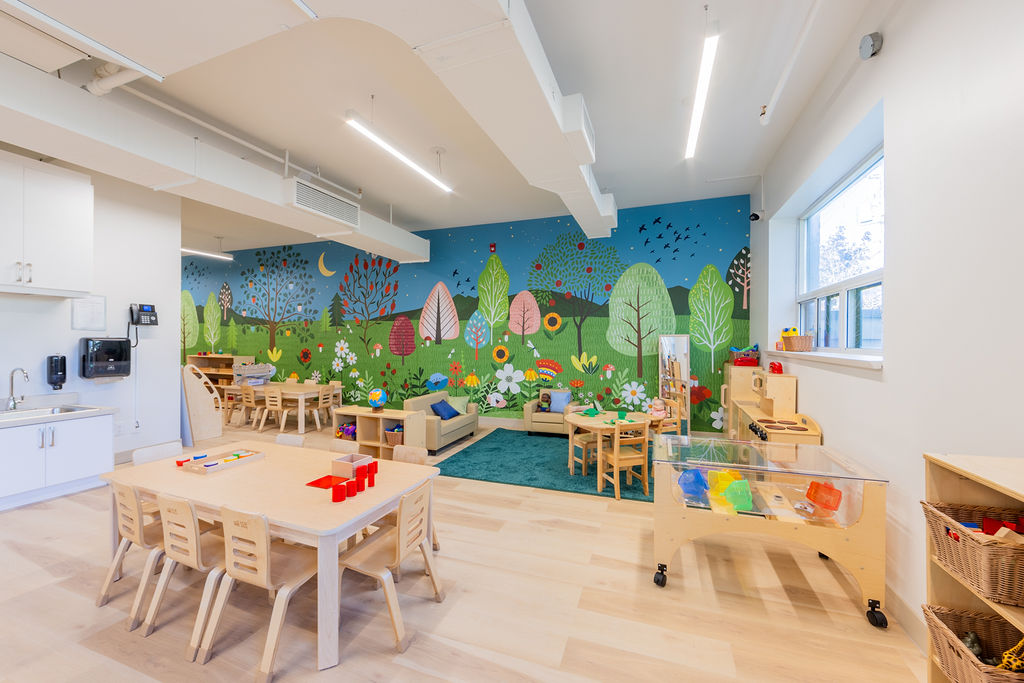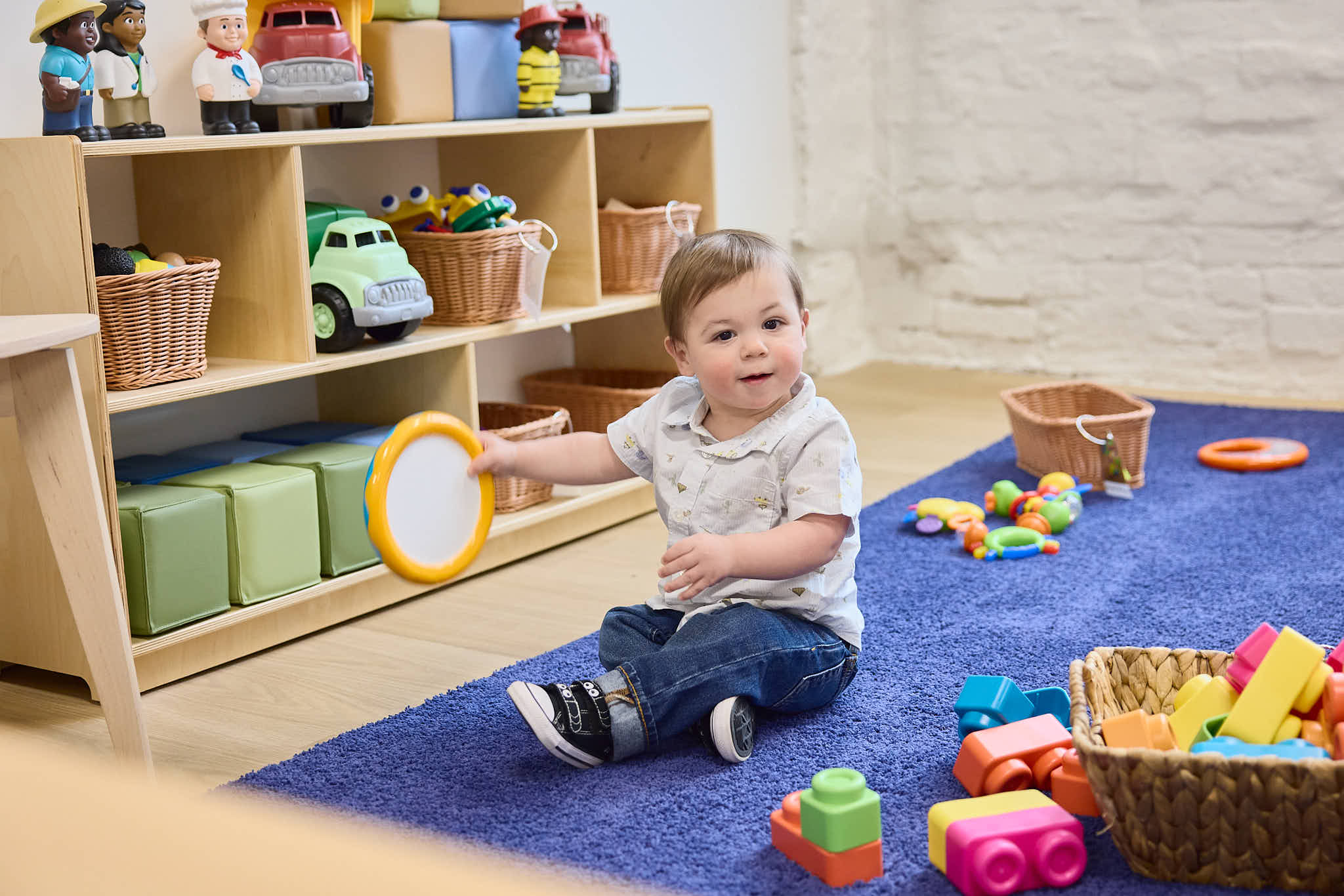Choosing the right extracurricular activities is a fantastic way to enrich your child’s life, helping them explore new interests, develop skills, and build confidence outside of the classroom. But with so many options available, from sports to music to STEM clubs, how do you choose the right ones?
This guide will help you navigate how to pick out extracurriculars, focusing on age-appropriate activities that nurture your child’s curiosity, build resilience, and foster a love for learning.
What Are Extracurricular Activities?
In simple terms, extracurricular activities are any structured activities your child participates in outside of their regular school curriculum or care routine. They are a wonderful opportunity to go beyond the basics and give your child a head start in life. For school-age children, this often means sports leagues or clubs after school. However, extracurricular activities for kindergarteners and preschoolers can be just as valuable. These could include weekend kiddie soccer, dance lessons, a mommy-and-me music class, or art workshops. Even at a very young age, these activities provide new experiences beyond the everyday routine.
Why Extracurriculars Matter for Early Childhood
Early childhood is a time of rapid development, and extracurricular activities play a vital role in nurturing a child’s holistic growth. They are not about pushing kids or achieving awards, they’re about exploration and enrichment.
Building Essential Skills
Activities like sports, art, or music are invaluable because they give children real, active work to do with their bodies and brains. These skills don’t develop in isolation; they support each other. For instance, when your child is kicking a ball in soccer, they’re improving their gross motor coordination (their large muscle control) and their spatial awareness. Concurrently, if they’re focused on holding a tiny paintbrush or learning to play an instrument, they’re boosting their fine motor skills and crucial cognitive abilities like concentration, memory, and pattern recognition. These diverse, hands-on experiences strengthen the entire foundation your child needs for easier academic learning and long-term physical health.
Fostering Social Development
Participating in a group activity teaches children how to take turns, cooperate, and communicate. Being part of a team or class can help shy children come out of their shell and more outgoing children learn leadership and empathy. Extracurricular activities for kids often involve listening to instructors and following rules in a fun setting, which builds self-regulation.
Boosting Confidence & Self-Discovery
When a child tries a new activity and finds something they enjoy, it’s a huge self-esteem boost! Mastering a new swim stroke or performing in a tiny dance recital can make them feel proud and confident. Extracurriculars also let children discover their passions from an early age, whether it’s a love for painting, soccer, or building.
Developing Healthy Habits
In a world full of screens, structured activities encourage more active and engaged play. Physical activities help kids stay healthy, while creative and cognitive activities stimulate their minds. Having a hobby also teaches young children about commitment and routine, providing a comforting sense of structure in their lives.
How to Choose the Right Extracurricular Activities
Every child is unique, so how do you choose extracurricular activities that will be the best fit? Consider your child’s individual needs and your family’s circumstances.
- Age & Development: Ensure the activity is age-appropriate. For example, a three-year-old might do well in a parent-and-tot dance class, whereas extracurricular activities for kindergarteners can be a bit more structured, like beginner soccer or swimming lessons.
- Interests: Follow your child’s curiosity. Do they love to dance and sing? Are they fascinated by bugs and rocks? When kids genuinely enjoy an activity, they’re more engaged and motivated.
- Temperament or Personality: Match the activity to your child’s personality. An active child might thrive in a sports class, while a quieter child may prefer a gentle art class or a nature exploration group.
- Schedule and Balance: Look at your family’s routine to avoid overscheduling. Young children need plenty of downtime and rest. It’s perfectly okay to start with one activity at a time. The goal is a healthy balance that enriches your child’s life, not an overwhelming calendar.
Extracurricular Activities Examples
Here are some popular extracurricular activities examples organized into categories to help you find the perfect fit for your child.
Sports & Movement
For active kiddos, sports and movement activities are a fantastic outlet for developing gross motor skills and teamwork.
- Soccer: A great way to learn coordination and cooperation. Joining a tiny tots’ soccer team or a T-ball league can be an exciting first sports experience for preschoolers and kindergarteners. In these low-pressure team sports, kids learn to follow simple rules and work towards a common goal. They practice taking turns, listening to a coach, and encouraging their teammates. Early soccer or baseball helps develop coordination, spatial awareness on the field, and basic teamwork.
- Swimming: An essential life skill that builds whole-body strength and water confidence. Infant or toddler swim classes introduce little ones to water in a gentle, safety-focused way. Splashing in the pool builds physical skills like muscle strength, balance, and coordination. It also improves water confidence and may even be lifesaving as kids learn basic water safety. For many children, mastering a new skill like floating or kicking gives them a huge sense of accomplishment.
- Martial Arts (e.g., Karate or Taekwondo): Focuses on discipline, respect, and self-control. Martial arts classes for young children emphasize basic movements and discipline in an age-appropriate manner. Children learn to focus their attention and practice patience as they repeat moves. The belt progression system can be very motivating and builds confidence as kids earn new belts through effort and persistence.
- Kids’ Yoga or Dance: Wonderful for kids who enjoy active play but might not be into competitive sports. A kids’ yoga class uses fun poses and breathing exercises to improve flexibility and body awareness, while also helping with emotional regulation. Dance classes combine music and movement, allowing kids to express themselves while developing rhythm and coordination.
Creative Arts & Music
These activities let children use their imagination while developing fine motor and cognitive skills.
- Art Classes: A great outlet for self-expression and fine motor control. In these activities, kids might explore with crayons, paints, clay, and collage materials. Creating art helps develop fine motor control and boosts cognitive development as kids plan and make decisions about their artwork. It’s also a fantastic outlet for self-expression.
- Music Lessons / Music & Movement: Supports brain development, memory, and listening skills. Introducing music early can be as simple as a weekly group music class for preschoolers, where kids sing songs, play with simple instruments, and dance along to rhythms. These classes are lots of fun and build early musical skills. Music activities are known to support brain development, improving memory and pattern recognition.
- Dance or Drama: Dance lets kids channel their energy into learning steps and routines. They gain balance, coordination, and a sense of rhythm, and they learn to follow instructions in a fun setting. Drama or theater programs for little ones use imaginative play, storytelling, and role-playing to build great communication skills, empathy, and self-confidence in speaking up.
STEM & Problem Solving

For the curious thinkers, these activities provide a chance to engage their problem-solving muscles in a playful way.
- Coding & Robotics for Kids: Teaches sequencing and cause-and-effect with age-appropriate games. There are extracurricular programs where kids might play with robot toys or LEGO® robotics kits that teach the basics of coding logic through age-appropriate games. These activities boost problem-solving skills, logical thinking, and give kids a head start in understanding technology.
- Little Science Explorers: Nurtures curiosity and observation skills through simple, hands-on experiments. If your child is always asking “why?”, a science-themed activity might be perfect. This could be as simple as mixing baking soda and vinegar to see a fun fizzy reaction, or observing insects and plants on a nature walk. Science activities nurture curiosity, observation skills, and understanding of basic concepts.
- Building and Engineering Play: Teaches about shapes, balance, and patience through building projects. For instance, a LEGO club or block-building class lets children construct towers, bridges, and whatever they imagine. Through building projects, kids learn about shapes, balance, and problem-solving, and they practice patience and perseverance.
- Math Games & Puzzles: Makes problem-solving feel like play, introducing concepts like numbers, patterns, and logic. For some children, a fun math or puzzle club can be very engaging. These aren’t your typical math drills—think interactive games that involve counting, sorting, or simple board games and scavenger hunts. The idea is to make problem-solving feel like play.
Social & Emotional Enrichment
These activities help kids learn about cooperation, empathy, and communication while having fun.
- Playgroups and Social Skills Classes: Provides a safe setting for children to practice sharing, manners, and conflict resolution. Outside of regular daycare or school, these group activities are specifically aimed at fostering social interaction. In these settings, children get to play together in guided activities that teach sharing and conflict resolution in simple ways.
- Community Groups or Scouts: Gives young children a sense of belonging and teaches values like teamwork and responsibility. Being part of a community-based group can give young children a sense of belonging and teach values like teamwork, responsibility, and helping others. In these groups, kids participate in age-appropriate adventures and team projects.
- Language or Cultural Classes: Fosters openness and empathy toward different communities. Learning a new language or participating in cultural activities can also enrich a child’s social and emotional world. This exposure fosters openness and empathy toward different cultures, a valuable social skill in our diverse world. In a group language class, children practice taking turns speaking and supporting each other as they learn new words.
Partnering with The Learning Nest for Your Child’s Growth
Choosing the right extracurricular activities can greatly enhance your child’s early years, and the best part is, you don’t have to do it all on your own. At The Learning Nest, we believe in providing a well-rounded, enriching environment for children right within our daycare program.
“Bringing music, yoga and STEAM into our daily routine gives children a little bit of everything – music sparks language and creativity, yoga helps them slow down and focus and STEAM feeds their curiosity and problem solving skills. Together, it helps them grow in a really balanced way.” – Sabrina Scalfo, RECE
For parents, this integrated approach means peace of mind and balance: your child enjoys the benefits of extracurricular-style activities without the need to shuttle to multiple programs around the city.
“With our mix of Montessori, Core Knowledge and HighScope, children get the best of both worlds – time to explore and learn on their own, and chances to work together in groups. This way, they start building confidence in their own thinking while also learning how to cooperate with others from day one.” – Martina Ross
If you’re looking for a daycare with extracurricular activities that nurtures the whole child, The Learning Nest could be the perfect fit for your family. We’d love to show you how we help your child thrive each day. Come see the difference for yourself!










